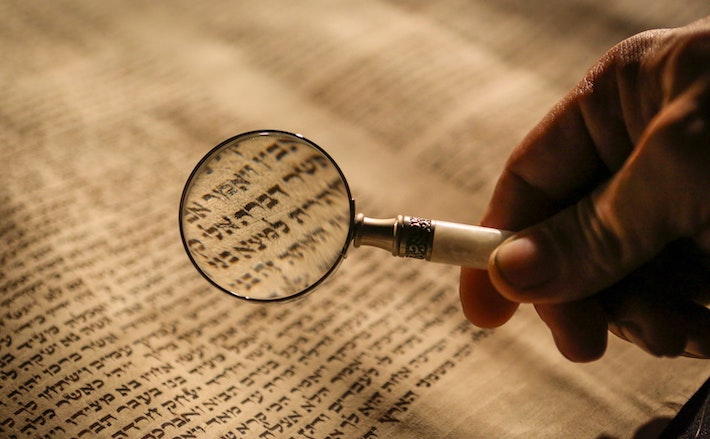I love a good theme. This affinity is something I have realized about myself during the pandemic.
When we first began to shelter in place back in March of 2020, like many other parents I found myself scrambling to keep my preschooler and sixth grader occupied so that they could keep learning and I could keep working. In my quest for order in the midst of chaos, I decided each week we would follow a theme: space week, jungle week, ocean week, etc. On the weekends I would gather up activities that fit the theme—printing out coloring sheets and play-doh mats, pulling pertinent books from our shelves, and scouring the internet for craft ideas. Then, whenever the kids asked, “What can we do?” I could point them toward the themed activities.
Most of the time, our theming ended up not in my leading them through some elaborate craft, but simply in my shooing them out of the house with a thematic prompt: “Go outside, pretend you’re a shark, and chase your brother!” Nonetheless, by giving each week an assigned topic, I could find a sense of structure as I stared out into the abyss of the unknown.
Trinity Sunday is a rare moment in the liturgical calendar when the church’s theming focuses around a theological concept rather than a moment in the life of Christ. It does strike me as a little peculiar to devote a Sunday to an idea that, at least in theory, is a theological bedrock featuring in our worship practices every Sunday. And yet, my guess is that many of us personally have an affinity for one part of the Trinity over another. This is not a matter of orthodoxy or heresy, but rather a matter of how we are drawn to the divine, how we understand or picture our own relationship with the Triune God.
Our hymnody can be telling on this point. Do you prefer “Immortal, Invisible, God Only Wise,” or “What A Friend We Have in Jesus,” or “Spirit of Gentleness”? My grandma, for example, didn’t have much patience for a hymn that wasn’t about Jesus. Her favorite was “O Jesus, I Have Promised,” by John Ernest Bode. She faithfully recited the Apostles’ Creed every Sunday, but when it came to being in the trenches of life, it was not the Spirit’s wisdom or even the Father’s almighty power that she would name as carrying her through. Rather, she would call to Jesus to “draw Thou nearer / and save my soul from sin.”
Trinity Sunday can be an opportunity to remember that God is more than our favorite, go-to depictions of God.
Of course, there are hymns for emphasizing God’s Triune nature, too, and the favorite for Trinity Sunday is usually Reginald Heber’s “Holy, Holy, Holy! Lord God Almighty,” with its praise of “God in three persons, blessed Trinity.” The lyrics draw inspiration from this week’s appointed Old Testament reading, Isaiah 6:1-8, thereby linking the notion of God’s holiness with our Trinitarian sensibilities. The cherubim and seraphim attending God in the temple sing out, Qadosh! Qadosh! Qadosh! “Holy! Holy! Holy is the LORD of hosts! All the earth is filled with his glory!”
This wonderfully dramatic scene, which depicts God’s fearsome power, is not everyone’s favorite way to think about God. But the pageantry provides a very stark contrast to the passage’s opening phrase, situating the moment “in the year that King Uzziah died.” Here is a throne room, here is the holy king, here is the real king (as Isaiah testifies in verse 5), who lives and reigns and thunders while the worldly kings molder in tombs.
How fascinating that Isaiah’s encounter with God’s holiness leads him immediately to declare that he is a “man of unclean lips”! While his concern surely has some relationship to his prophetic vocation, God has not yet in this scene bidden Isaiah to talk. Rather, Isaiah’s first concern upon experiencing the overwhelming, holy presence of God is to rid himself of the impurity with which he speaks. He is worried about the words that have gone out of his mouth.
Leviticus 19:2 reminds us that we have been commanded to be holy like God: “You shall be holy for I the LORD your God am holy.” In Matthew 5:48 Jesus seems to up the ante a bit, saying, “Be perfect, therefore, as your heavenly Father is perfect.” What does it mean to be holy, or perfect, like God? There are many ways to answer this. The hymn describes God’s holiness as “perfect in power, love, and purity.” In Isaiah 6, the question of purity of speech confronts the prophet.
It is always timely to be reminded that how we speak to and of each other matters. These days we are presented with practically infinite opportunities to let our speech ring out—across our families, across our communities, across the internet. But woe to us, we are people of unclean lips. We can be hateful and vindictive, stingy in our praise and generous in our scorn. When we stare into the abyss of the unknown, our impulse is to lash out at our neighbors, to figure out how we are ok because we’re not like “them”—whoever our “them” may be.
The church’s association of Trinity Sunday with Isaiah 6 invites us to let the topic of our speech be part of the trinitarian “theme.” We can pray that the holiness of the Triune God will blot away our sinful speech and transform us into people who preach good news with good and holy words.

